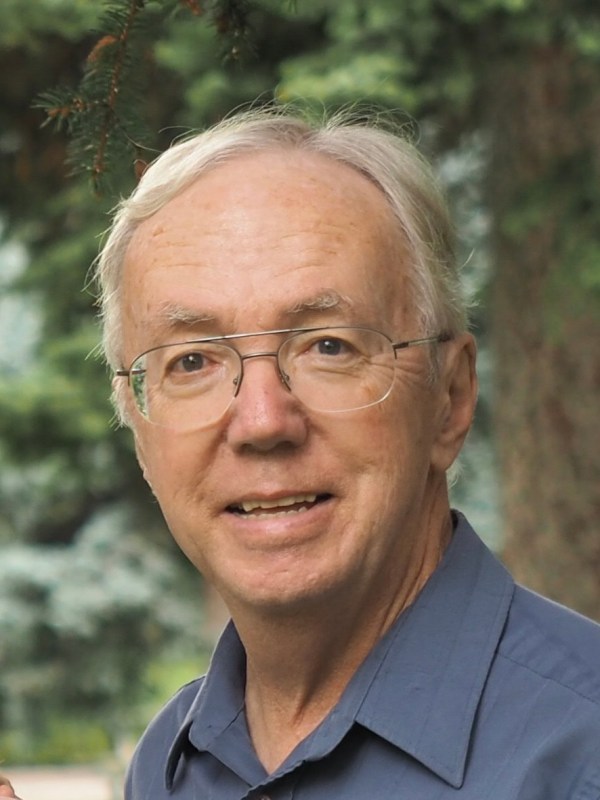Thomas F. Heck
Thomas Heck, scholar, musician, husband, and father, passed away on October 3 from the effects of Parkinson’s disease. The youngest of three sons born to Harold J. Heck and Suzanne (“Bunny”) Holt, Tom spent most of his early childhood in New Orleans, except for a year in Japan when he was nine and his father was teaching foreign trade at Waseda University. A few years later the family moved to Paris where Tom’s father worked as commercial attache at the American embassy. It was in Paris that the teenaged Tom first took up the guitar that was to become his life’s work. After a year of acculturation there, Tom enrolled in a French lycee, immersing himself in French and eventually passing the baccalaureat, which qualified him to pursue a university education in France.
Tom elected, however, to return home. He earned his bachelor’s degree in music at Notre Dame University and then went on to graduate school, studying music history at Yale University. In 1967 he met Anne Goodrich, then a senior at Vassar College. They married a year later and booked berths on an old freighter headed for Europe, as Tom had won a Fulbright grant to do dissertation research. This resulted in Tom’s seminal work on the birth of the classical guitar and its cultivation in Vienna in the early 19 th century, as reflected in the work of guitarist and composer Mauro Giuliani. Tom’s book was republished several times in updated editions as new information came to light.
After teaching music history for five years, Tom earned a degree in library and information science. He was the director of the Music and Dance Library at The Ohio State University for 22 years. In 1973, while on vacation in Santa Barbara, he and some musical colleagues founded the Guitar Foundation of America. He was a frequent contributor to its journal, Soundboard, and in 2015 he created a special annual edition called Soundboard Scholar. Tom’s interests broadened to encompass theater history, after he became intrigued by depictions of masked actors holding musical instruments, including guitars. Another Fulbright, to Florence, Italy, enabled him to develop an extensive bibliographic work on the sources of the Italian improvised theater, the Commedia dell’ Arte. With his wife Anne and an Italian colleague, Francesco Cotticelli, he translated and published important source documents in this field. A grant to the Netherlands Institute for Advanced Studies led to a collaborative work with several colleagues to produce Picturing Performance, a book about what the visual arts can contribute to our knowledge of the performing arts of music, dance, and theater.
Never one to rest on his laurels, Tom led a very active life even in retirement. Moving to Santa Barbara in 2001, he became a music minister, first at St. Mark’s University Parish at UCSB, and then with the Catholic Church of the Beatitudes, a community affiliated with Roman Catholic Women Priests. He studied Web design at Santa Barbara City College and became webmaster for several local non-profits. For many years he recorded, edited, and mounted the audios of speakers to Word and Life, a study and discussion group describing itself as “thoughtful Christians in search of a mature faith.” He took voice lessons and developed a second career of going to retirement homes with his guitar and songbook to engage seniors in singing the songs they knew from their youth. His voice teacher and colleague, Carol Ann Manzi, often joined him, and they collaborated on a number of musical events and projects. He was always eager to lend a helping hand to individuals he met, and to community efforts to serve those in need. For example, Tom volunteered his services with Visiting Nurse and Hospice Care, visiting hospice patients in their homes or at Serenity House. He especially enjoyed speaking and singing with patients in French, German, Italian, or Spanish.
Tom is survived by his wife Anne; daughter Kalyra Goodrich and her sons Lukas and Jakob; son John, his wife Thara, and their two children, Leena and Rohan; and his mother-in-law, Dorris Goodrich. He will be remembered for his academic contributions, especially in the guitar world, but also for his passionate concern with world peace and for his quiet but timely support for many immigrants and refugees from central and Eastern Europe and Southeast Asia. Contributions in his name can be made to the Guitar Foundation of America, the Michael J. Fox Foundation for Parkinson’s Research, the International Rescue Committee, or the Nuclear Age Peace Foundation. A memorial service will be held at a later date still to be determined.

